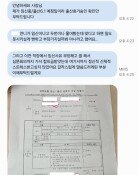Regrets over U.S. president’s visit to Hiroshima
Regrets over U.S. president’s visit to Hiroshima
Posted May. 28, 2016 07:43,
Updated May. 28, 2016 07:53
U.S. President Barack Obama on Friday became the first U.S. president to visit the Hiroshima Peace Memorial Park since the U.S. atomic bombing of Japan 71 years ago. After laying flowers before a monument dedicated to the victims of the bombing, Obama remembered all innocent victims of World War II and called for a “world without nuclear weapons.” It was his efforts to promote his peace diplomacy in the world’s only atomic bombed country as the winner of the 2009 Nobel Peace Prize.
To Koreans’ regret, however, Obama failed to visit a monument dedicated to Korean victims of the bombing that was just 200 meters away. The leaders of the U.S. and Japan laid flowers before the Hiroshima monument together, effectively giving a green light to Japanese Prime Minister Shinzo Abe, who is trying to emphasize Japan’s image as a “victim” of the war and make his country a normal country again. The United States should know that South Korea cannot applaud a situation, in which Japan, the inflictor of wartime atrocities, is being transformed into a victim.
Although Obama’s actions seem to be aimed at making a historic compromise, it can be said that he actually signal the strong alliance between Washington and Tokyo. At a summit with the Vietnamese leader earlier in the week, he also lifted the U.S. ban of lethal weapons exports to Vietnam in an apparent move to join hands with former enemies in order to defend U.S. interest by checking China.
The North Korean nuclear issue has become a global issue that poses a security threat to the world beyond East Asia. G7 leaders issued a closing declaration strongly denouncing Pyongyang’s provocations. The latest edition of the U.K. weekly Economist treated North Korean leader Kim Jong Un and Pyongyang’s nuclear development as its cover story. The weekly said the North would never stop its nuclear development, proposing the strengthening of the U.S. missile defense system as a top priority agenda for the next U.S. president. It is regrettable that Obama, who insisted on “strategic patience” toward the North’s nuclear program despite his call for a nuclear-free world, did not invite South Korean President Park Geun-hye to the G7 summit to stress a joint efforts among Seoul, Washington and Tokyo against the North’s nuclear weapons.
As the latest G7 summit showed, it is necessary to increase our diplomatic capabilities in order not to be alienated in the global political situation dominated by the logic of power. South Korea should have made diplomatic efforts in time with Obama’s visit to Hiroshima to emphasize the gruesome consequences of nuclear weapons and wars and call for international cooperation and solidarity against the North’s nuclear program. It is frustrating to see that Seoul has no diplomacy and foreign affairs roadmap despite the North’s nuclear threats.
허문명논설위원 angelhuh@donga.com
Headline News
- N. Korea launches cyberattacks on S. Korea's defense companies
- Major university hospital professors consider a day off each week
- Italy suffers from fiscal deficits from ‘Super Bonus’ scheme
- Inter Milan secures 20th Serie A title, surpassing AC Milan
- Ruling and opposition prioritize spending amid tax revenue shortfalls







